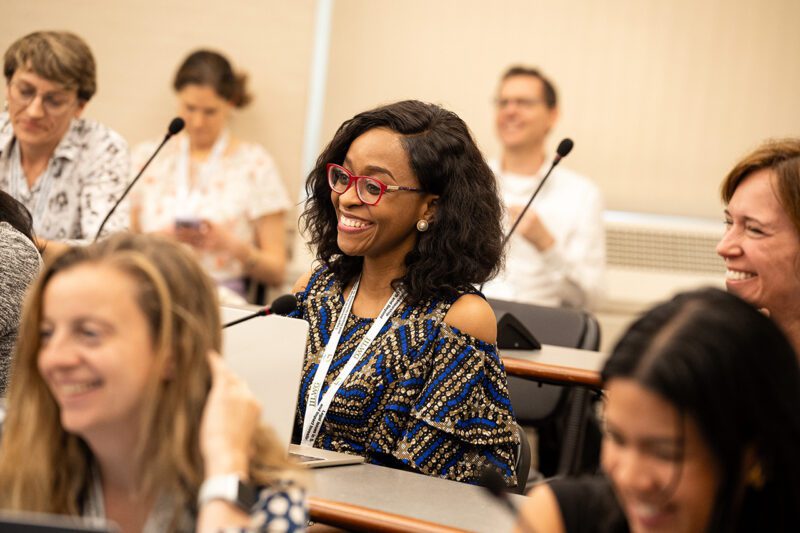Sovereign Seeds: Reclaiming MENA’s Agricultural Future
Reviving local food systems and unlocking rural prosperity
Legal tools and innovations

New York University's Grunin Center
For anyone engaged in the financial system or affected by it — which essentially includes all of us — it’s probably no surprise that the system is heavily imbalanced. This imbalance doesn’t just refer to the growing wealth inequality in the United States but also to the power dynamics between those with the knowledge, professional credentials, and financial assets to influence the flow of money and those who seek to benefit from or are in greatest need of these financial flows. Consider some of the critical roles in the impact economy: lawyers, tax professionals, investment advisors, or managers. To enter these professions, one often needs graduate degrees, licenses, and certifications, which require years of study and significant financial resources to attain and maintain. Even just acquiring a basic understanding of these fields sets one apart from those without such knowledge, leading to an inherent imbalance in negotiating power when it comes to allocating capital — even when the ultimate goal of these negotiations is to distribute wealth more equitably.
Thankfully, there are many such practitioners seeking to shift these power dynamics towards a better balance. Over 300 students, lawyers, academics, and other stakeholders from across the globe had the good fortune to learn about and share their contributions in this respect at this year’s Annual Conference on Legal Issues in Social Entrepreneurship and Impact Investing, hosted by the Impact Investing Legal Working Group & the Grunin Center at New York University (the “Grunin Conference”) on June 4th and 5th, 2024.
Since its inception nearly a decade ago, the Grunin Conference has been dedicated to expanding the global community of lawyers working in social entrepreneurship and impact investing. Both the conference and the impact investing field have significantly evolved over this time. This year’s conference featured provocative discussions and introduced innovative tools aimed at shifting power dynamics in the investment space to achieve more equitable, collaborative, and therefore more efficient and shared outcomes for all stakeholders. This includes the individuals, communities, and institutions we aim to positively impact through this work. For the attendees and contributors to the Grunin Conference, it all begins with the lawyers and their primary tool of trade — the documentation.

Participants at the NYU Grunin Center’s 2024 Conference on Legal Issues in Social Entrepreneurship and Impact Investing. Photo credit: ©Myaskovsky: Courtesy of NYU Photo Bureau.
At last year’s conference, Kate Vitasek introduced Vested®, a methodology she developed based on award-winning research conducted by the University of Tennessee College of Business Administration and funded by the U.S. Air Force. Vested® began as a unique approach to procurement contracting, where the documentation shifts from a buyer-seller tug of war — where each party aims to extract as much as possible from the relationship — to fostering “highly collaborative business relationships that enable true win-win outcomes, with both parties equally committed to each other’s success.” The methodology has expanded in scope and impact, encompassing online written and audio/video trainings, several books, and specific engagements and case studies that demonstrate the value retained by each party and the value mutually created—exemplifying the philosophy that 1+1 can be greater than 2.
This year’s Conference highlighted two additional tools for shared-value contracting:
How can we encourage more investors, investees, and their advisors — especially lawyers and investment advisors — to adopt practices that promote greater equity in risk-sharing, terms-setting, and desired outcomes? We need to rethink how we educate. In this context, the Grunin Conference showcased Ashoka’s Changemaking for Lawyers Syllabus Project, which is creating coursework for “Changemaker Campus” law schools that delve much deeper into social enterprise than traditional curricula. The project is led by a working group headed by Annette McGee Johnson, Legal Counsel for Strategic & External Engagement at Ashoka, and Susan R. Jones, Professor of Clinical Law at George Washington University School of Law.
How can we encourage more investors, investees, and their advisors — especially lawyers and investment advisors — to adopt practices that promote greater equity in risk-sharing, terms-setting, and desired outcomes?
I would take this effort even further. In my opinion, we need more interdisciplinary education and practice focused on social impact. Our higher education, and even high school, curricula should integrate all relevant expertise and perspectives, encouraging collaboration across disciplines to develop creative approaches to our most complex challenges. Imagine the capstone projects that could emerge from a course or degree program where students and faculty from business, law, engineering, and healthcare work together to learn and innovate. When we co-create solutions in partnership, we build greater trust, stronger relationships, and the right incentives to share power, both at the drafting table and in the outcomes we achieve.
Related Content
Comments
Deep Dives

Featuring
Clarisse Awamengwi
IE Correspondent
July 17 - 12:00 PM EST

Featuring
Russell McLeod
July 24 - 12:00 PM EST
RECENT
Editor's Picks
Webinars
News & Events
Subscribe to our newsletter to receive updates about new Magazine content and upcoming webinars, deep dives, and events.
Become a Premium Member to access the full library of webinars and deep dives, exclusive membership portal, member directory, message board, and curated live chats.
At Impact Entrepreneur, we champion fearless, independent journalism and education, spotlighting the inspiring changemakers building the Impact Economy. Diversity, equity, sustainability, and democracy face unprecedented threats from misinformation, powerful interests, and systemic inequities.
We believe a sustainable and equitable future is possible—but we can't achieve it without your help. Our independent voice depends entirely on support from changemakers like you.
Please step up today. Your donation—no matter the size—ensures we continue delivering impactful journalism and education that push boundaries and hold power accountable.
Join us in protecting what truly matters. It only takes a minute to make a real difference.
0 Comments